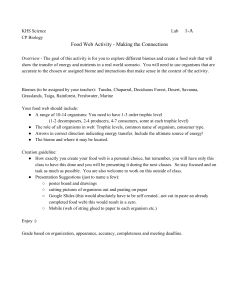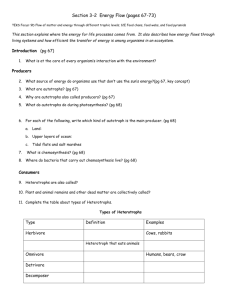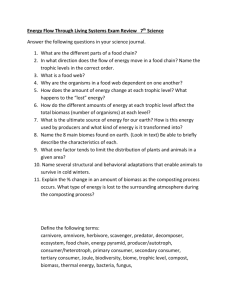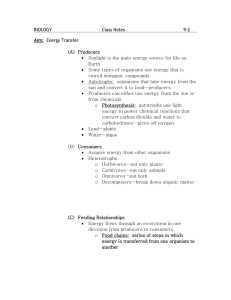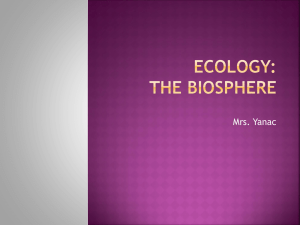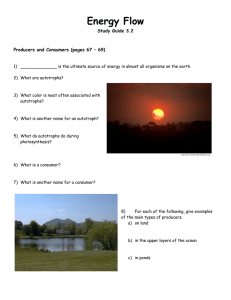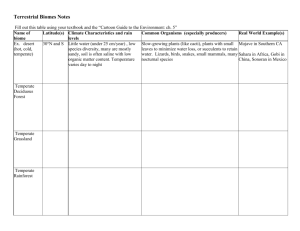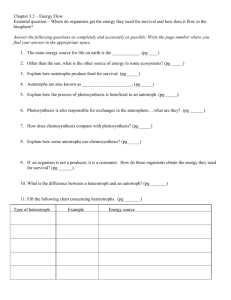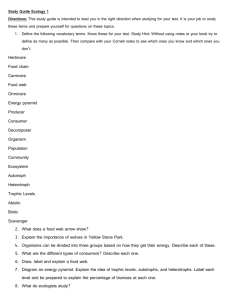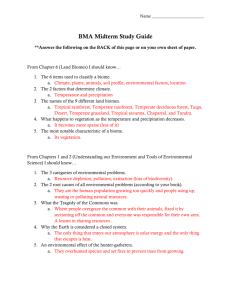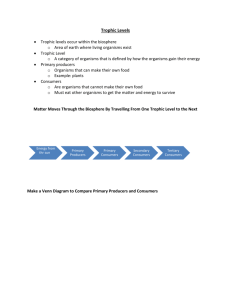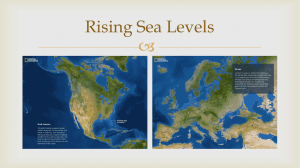Energy Transfer – Chapter 18, Section 4 (pages 366 – 369)
advertisement
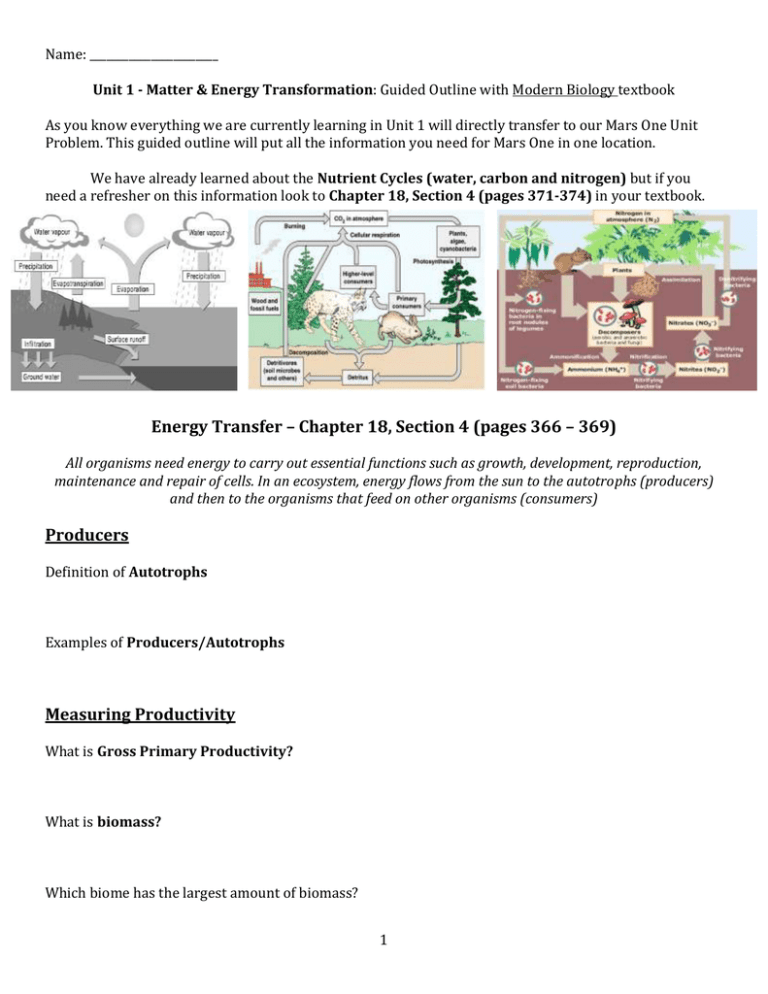
Name: _______________________ Unit 1 - Matter & Energy Transformation: Guided Outline with Modern Biology textbook As you know everything we are currently learning in Unit 1 will directly transfer to our Mars One Unit Problem. This guided outline will put all the information you need for Mars One in one location. We have already learned about the Nutrient Cycles (water, carbon and nitrogen) but if you need a refresher on this information look to Chapter 18, Section 4 (pages 371-374) in your textbook. Energy Transfer – Chapter 18, Section 4 (pages 366 – 369) All organisms need energy to carry out essential functions such as growth, development, reproduction, maintenance and repair of cells. In an ecosystem, energy flows from the sun to the autotrophs (producers) and then to the organisms that feed on other organisms (consumers) Producers Definition of Autotrophs Examples of Producers/Autotrophs Measuring Productivity What is Gross Primary Productivity? What is biomass? Which biome has the largest amount of biomass? 1 Consumers – grouped into categories based upon what they eat Definition of Heterotroph How is the term heterotroph similar to the word consumer? Definition of Herbivores Example Definition of Omnivore Example Definition of Detritivore Example Definition of Decomposer Example Energy Flow How does energy flow through an ecosystem? Definition of Trophic Level Who is in the first trophic level? Who is in the second trophic level? Who is in the third trophic level? 2 What is a food chain? How id a food web different from a food chain? Energy Transfer Draw an energy transfer diagram & label it Why is the energy transfer diagram in the shape of a pyramid? What percentage of the energy gets moved between the levels? Why is the percentage of energy transfer so low? Limitations of Trophic Levels Why do ecosystems not have more than 3 or 4 levels? Cite example that you are thinking of using for Mars One 3 Terrestrial Biomes – Chapter 21, Section 1 (pages 417-422) Biomes are very large climatic regions that contain a number of smaller related ecosystems. A certain biome may exist in more than one location but similar climate and inhabitants will be found there. How are BIOMES distinguished from each other? Biome Defining Characteristics Climate Tundra Tropical Forests Temperate Forest Temperate Deciduous Forest Taiga 4 Producers Consumers Temperate Grasslands Savanna Chaparral Desert Questions- Write your answers in complete sentences and thoughts on loose leaf paper. Please answer questions 7-9 on page 369 and questions 7 – 10 on page 422. 5
